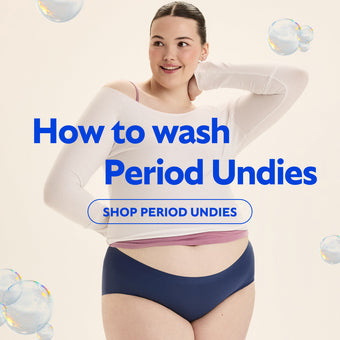As a high school tennis player, Cassey Ho was driven to win. Ho would practice playing tennis 3-4 hours a day, sweating profusely in the hot California sun, refueling with burritos, pizza and hot pockets from the high school cafeteria. But there was one side effect she didn’t expect: losing her period. From August to November, Ho’s period would completely disappear and refuse to return until the competitive season was over. She estimates she didn’t have a period when she was in peak training mode for a total of four years.
Ho’s missing menstrual cycle is called amenorrhea and it’s an extremely common side effect in many female athletes. An estimated 25% of elite athletes who menstruate report chronically missing their periods, compared to 2-5% of the general population. The problem is even more acute for ballerinas and long-distance runners, where the prevalence of amenorrhea can be as high as 69%. So why exactly do athletes have irregular periods? Read on for an explanation of what exactly happens to the body when it exercises too much as well as ways to get it back.
Shop: Try our Period-Proof Activewear and never leak at sports practice again.
Why do athletes have irregular periods?
Athletes are often under a lot of stress and pressure to perform well, which can lead to irregular periods or missed periods altogether. The stress of training and competing can affect the hormones that regulate menstruation.
Amenorrhea tends to happen when an athlete pushes their body too hard with long, strenuous hours of exercise without refueling their bodies with the healthy, nutritious food it needs to keep going.
There are a number of reasons why athletes may experience irregular periods. One possible factor is stress. A high-stress environment can increase levels of the hormone cortisol in the body, which can disrupt the menstrual cycle by suppressing ovulation.
Excess exercise can cause an imbalance of female sex hormones, which can result in missed or light menstrual periods. This is known as Exercise-induced Amenorrhea (EAM). There are many reasons why an athlete might experience irregular periods, including stress, weight fluctuations and intense training schedules. In addition to these possible causes, some studies have suggested that certain sports may cause changes in hormones that lead to menstrual irregularities in female athletes.
While periods can be slightly annoying, and side effects like cramping, bloating and fatigue can turn exercise into a real chore, they’re a necessary part of life. Getting a period is a sign that your body and reproductive system function healthy and normal. When you stop getting a period it signifies that something in your body is drastically wrong.
Periods only stop when the body isn’t able to function at full capacity. Basically, as Vox puts it, “The female body shuts down its reproductive capacity to protect from becoming pregnant, since it barely has enough energy to carry out its own basic functions.”

So what actually happens?
There are several reasons why athletes experience irregular periods from lack of fuel to hormone imbalance to stress.
Lack of fuel
When someone exercises, they burn off carbohydrates and fat. A certain amount of exercise is good but if they don’t refuel the body with food, it loses the fuel it needs to keep going. In order to avoid burning excess energy, the body gives up on having a period in order to save energy for other critical functions. This might sound extreme, but a period functions as a barometer for health.
When the body is healthy and has plenty of nutrients to go around, it can function normally. But if it isn’t getting enough nutrients from food, then it will stop doing things that aren’t necessary for survival. If your teen does not eat enough, their body will go into “starvation mode” and start to conserve energy. This means that it will slow down all of its processes in order to make sure that their heart keeps pumping blood around their body. When this happens, it becomes harder for the body to produce hormones. The result is that periods may stop as a way for the body to save itself from wasting too much energy on having a period when there isn’t enough food available.
Shop: Check out our Period-Proof Leotards and Tights for ballerinas and gymnasts.

Hormone imbalance
The human body is a balance of hormones: chemical substances that control the activity of cells or organs in the body. They work by sending messages to their target cells through the bloodstream. Excessive exercise can cause an imbalance of female sex hormones, which may result in missed or light menstrual periods. Researchers think differences in genetics and hormonal responses determine whether a female athlete is likely to miss her periods. The condition is most common in endurance athletes who exercise regularly and intensely.
It can also affect female athletes who play sports such as basketball, soccer, volleyball and cross-country running. EAM occurs when periods are missed or light bleeding is experienced because of the absence of ovulation. This usually happens because the body’s stress response increases during exercise and this affects the hypothalamus gland which controls the menstrual cycle. It is not known why this happens, but experts believe that it may be due to an increase in stress hormone levels during and after intense exercise.
Amenorrhea can be related to quick leaps in the amount of exercise a person does. For example, if your teen nailed a 5k run, they shouldn't go out the next day and attempt a 10k. When training for a competition it's best to increase the amount of exercise they do gradually instead of pushing themselves too hard.
Stress
Anxiety related to sport performance, academics or difficult personal situations can be enough to affect the body’s reproductive ability. When the body is under stress, the adrenal glands release cortisol. Cortisol helps your body respond to stress by increasing blood pressure, heart rate and blood sugar levels. This can be advantageous for athletes who need to perform at their peak during stressful competitions. However, too much cortisol can have negative effects on the reproductive system.
EAM can be a temporary condition or it can be long-lasting. If your teen experiences EAM for more than six months, it’s important that they see the doctor to rule out any underlying medical causes.

Causes of Amenorrhea
- Low levels of body fat: Women with less than 22% body fat may not get a period.
- Hormones: The brain releases beta endorphins and catecholamines when the body exercises. When levels of these hormones are too high, they are thought to affect the sex hormones that regulate normal periods like estrogen and progesterone.
- Stress: Anxiety related to sport performance, academics or difficult personal situations can be enough to affect the body’s reproductive ability.
- Disordered eating: Restricting calorie intake can cause a person’s period to disappear.
What are the long-term effects?
- Decreased bone density
- Higher risk of broken bones
- Osteoporosis
- Greater risk of cardiovascular complications like heart attacks
- Premature aging (skin loses flexibility due to lack of estrogen)
- Thinning and drying of the vaginal walls
- Breast shrinkage.
- Infertility
How your teen can get their period back
If your teen lost their period, they should try to get it back as soon as possible. The first thing to do if they've lost their period is to contact a medical professional who can give you advice that's specific to their own unique situation. One way to get your period back is by eating more --or at least eating enough to account for all of the calories they're burning -- and exercising less. Try adding more eggs, spoonfuls of peanut butter, or protein powder to your diet as a start.
Lastly, don't be afraid to talk with your teen about how athletics can cause their period to become irregular. Talking about it is one step towards ending the taboo.



